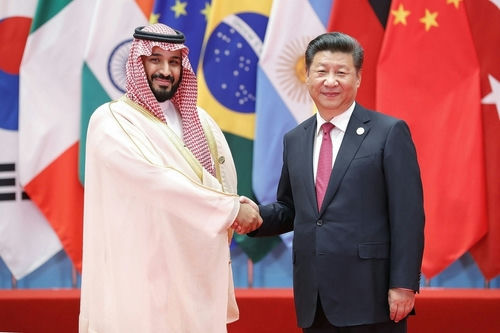A federal judge shatters decades of Saudi immunity, giving 9/11 families their first real shot at justice—while the establishment scrambles to contain the fallout.
Historic Ruling Shakes Decades of Legal Gridlock
On August 28, 2025, U.S. District Judge George B. Daniels denied Saudi Arabia’s motion to dismiss a lawsuit from 9/11 victims’ families, survivors, and insurers. For the first time, a federal court is allowing claims that Saudi officials or agents aided the hijackers to move forward, opening the door to discovery and depositions of Saudi officials. This decision comes after years of blocked lawsuits, as foreign governments typically enjoy protection under the Foreign Sovereign Immunities Act. Now, the case will proceed to trial, marking a legal and political turning point that could finally bring long-awaited answers—and accountability—to the American families whose lives were shattered on September 11, 2001.
The judge’s ruling is possible thanks to the Justice Against Sponsors of Terrorism Act (JASTA), passed in 2016 after bipartisan outrage over sovereign immunity shielding foreign actors from responsibility for terrorism on U.S. soil. JASTA allows American victims to sue foreign governments accused of supporting terrorist attacks, despite traditional legal barriers. Plaintiffs allege Saudi officials, including an imam and an accountant, provided material support to two key hijackers. Over the past decade, families have faced relentless legal wrangling, government resistance to releasing classified documents, and diplomatic pressure to drop the case. The latest court decision finally clears those obstacles for a full trial.
Legal and Diplomatic Implications for U.S.-Saudi Relations
This case is unprecedented in both its scope and potential diplomatic ramifications. Saudi Arabia, a longtime U.S. ally and strategic partner in the Middle East, has consistently denied any involvement in the attacks and fought allegations in court. But now, the kingdom faces depositions of its officials and the prospect of broad legal discovery. The ruling enables plaintiffs’ attorneys to collect new evidence in multiple states and question Saudi personnel under oath. While Saudi Arabia may still appeal under federal law protections, the risk of financial liability and reputational damage is real. The U.S. government finds itself balancing national security, transparency, and diplomatic interests while facing renewed scrutiny of its past handling of 9/11 intelligence.
Legal experts note that the outcome could set a powerful precedent for future lawsuits against foreign governments accused of terrorism. If successful, it may force other nations to think twice before supporting hostile actors or turning a blind eye to activities on American soil. The case also threatens to expose details that were previously kept classified, potentially reshaping the public’s understanding of the events leading up to 9/11 and the role of foreign actors. For conservative Americans, this breakthrough underscores the importance of transparency, accountability, and justice—not just for the families directly affected, but for the nation’s constitutional principles and security.
Plaintiffs’ Pursuit of Truth and Justice Gains Momentum
Plaintiffs in the lawsuit include families of 9/11 victims, survivors, insurance companies, and businesses seeking damages. Their motivation is deeply personal: justice for loved ones lost and a demand for answers after more than two decades of frustration. Brett Eagleson, a spokesperson for the families, called the decision a “historic win,” and legal teams emphasize that the trial is a chance to pursue truth and accountability. The case will now move into the discovery phase, with depositions of Saudi officials and new evidence collection expected to begin soon. For many, this development represents the first real hope of holding a powerful foreign government to account for its alleged role in the worst terrorist attack on American soil.
Judge rejects Saudi Arabia's bid to dismiss claims it supported 9/11 hijackers | Click on the image to read the full story https://t.co/lY041wYlu4
— WGAL (@WGAL) August 29, 2025
While Saudi officials have not issued new public statements, they continue to deny all allegations and seek to avoid liability. The trial’s outcome could have wide-ranging impacts, from financial damages to shifts in U.S.-Saudi relations and counterterrorism cooperation. It has reignited debate about government transparency and the need for constitutional safeguards against foreign influence and bureaucratic overreach. The conservative community, long frustrated by years of stonewalling and diplomatic gamesmanship, sees this as a vindication of the values of justice and accountability. The legal fight is far from over, but the door to truth is finally open.
Sources:
Federal judge allows families of 9/11 victims to sue Saudi Arabia
Victory for 9/11 Families Against Saudi Arabia
Saudi Arabia September 11 Lawsuit Trial
Judge: Families of 9/11 victims can sue Saudi Arabia over hijackers

